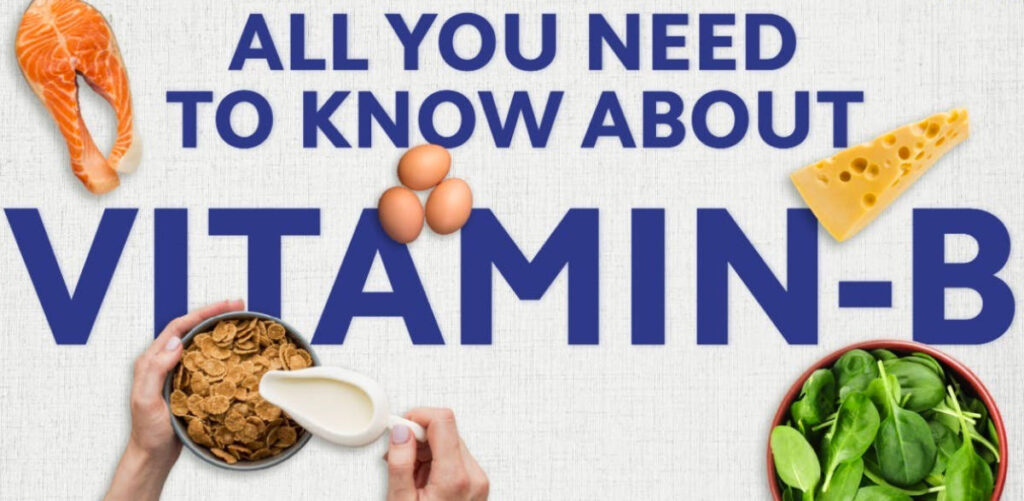How can I raise my vitamin b levels fast? Are you looking to get your Vitamin B levels back up to optimal levels quickly and efficiently? If so, you’ve come to the right place! In this blog post, we’ll be discussing five simple steps that you can take to naturally raise your Vitamin B levels so that you can enjoy better health and well-being.

Whether you’re looking to increase your energy levels, or want to improve your hair and skin health, these five simple steps will help you get the most out of your Vitamin B intake. So, let’s get started!
How can I raise my vitamin B levels fast?
There is no one-size-fits-all answer to this question, as the best way to raise your vitamin B levels will vary depending on your specific situation. However, some tips that may help include eating a balanced diet that includes plenty of fruits and vegetables, getting enough exercise, and taking supplements.
Benefits of Vitamin B
Vitamin B is essential for the body to function properly. It helps to create energy, maintain nerve function, and help the body absorb nutrients. Vitamin B can also help to reduce the risk of heart disease, stroke, and some types of cancer.
Step One: Eating Foods Rich in Vitamin B
Eating foods rich in vitamin B can help to support a healthy immune system. Foods that are high in vitamin B include leafy green vegetables, fortified cereals, and milk.
List of foods high in Vitamin B
Some foods that are high in Vitamin B are liver, beef, poultry, eggs, and fortified cereals.
Recipes for meals packed with Vitamin B
There are many recipes that are packed with Vitamin B. One example is a breakfast burrito that is packed with eggs, cheese, and salsa. Another example is a salmon dinner that is packed with asparagus, green beans, and a lemon sauce.
Step Two: Taking Vitamin B Supplements
Vitamin B supplements are a popular choice for people who want to take care of their health. Vitamin B supplements can help to improve your energy levels, cognitive function, and immune system. However, it is important to be aware of the potential side effects of vitamin B supplements.
Some of the potential side effects of vitamin B supplements include nausea, vomiting, and diarrhea. These side effects are usually mild and should go away after you stop taking the vitamin B supplement. However, if they are severe, you should talk to your doctor about whether you should continue taking the supplement.
Other potential side effects of vitamin B supplements include increased risk of heart disease and stroke. This is because vitamin B supplements can increase the levels of bad cholesterol in your blood. If you are at risk for heart disease or stroke, you should talk to your doctor before taking a vitamin B supplement.
Overall, vitamin B supplements are a safe and effective way to improve your health. However, it is important to be aware of the potential side effects so you can decide whether or not to take the supplement. You can also read what causes B Vitamins to be low!
Overview of Vitamin B supplements
There are many different types of vitamin B supplements on the market. Some are made from plant sources, while others are made from animal sources. Some are taken as pills, while others are taken as liquids. Some are designed for adults, while others are designed for children.
The most common type of vitamin B supplement is the pill. The pill form of the vitamin is easy to take and does not require any preparation. The downside to the pill form of the vitamin is that it can be difficult to remember to take it.
The liquid form of the vitamin is also easy to take. However, it can be difficult to remember to take the liquid form of the vitamin. The liquid form of the vitamin can also be difficult to store.
Recommended dosage of Vitamin B Supplements
There is no set dosage for Vitamin B supplements, as the amount needed varies depending on an individual’s age, weight, and activity level. Adults need around 50 to 100 micrograms (mcg) per day. For people over the age of 65, the recommended dosage is around 75 to 150 mcg per day. Pregnant women and breastfeeding mothers should take around 200 mcg per day. Children need around 1 to 2 mg per day.
Benefits of taking Vitamin B supplements
There are many benefits to taking Vitamin B supplements, including increased energy, better sleep, and a stronger immune system. Vitamin B also helps to improve cognitive function and memory.
Step Three: Exercising Regularly to Get Natural Vitamin B
Regular exercise has been shown to be an effective way to get the benefits of natural vitamin B. In a study published in the “Journal of the American Medical Association,” researchers found that people who exercised regularly had a 60 percent lower risk of developing heart disease than people who did not exercise.
The study also found that people who exercised regularly had a 50 percent lower risk of developing cancer than people who did not exercise. The benefits of exercise are not just limited to heart and cancer health. Exercise has also been shown to improve overall mental health and reduce the risk of obesity and other chronic diseases.
Benefits of Exercise in Getting Vitamin B
One of the many benefits of exercise is that it helps to improve your overall health. Exercise can help to improve your mood, cognitive function, and overall physical health. It has been shown to be a great way to get your daily dose of vitamin B.
Exercise can help to increase your vitamin B levels by up to 30%. This is because exercise helps to increase the production of red blood cells, which require a lot of vitamin B to function properly. Additionally, exercise can help to increase the absorption of other nutrients, such as vitamin B, through the gut.
So, if you are looking to improve your overall health, exercise is a great way to do so. Not only will you feel better, but you will also be getting your daily dose of vitamin B.
Types of activities that promote Vitamin B levels
There are many different types of activities that can promote Vitamin B levels in the body. Some of these include:
1. Eating a healthy diet that includes plenty of fruits and vegetables.
2. Taking supplements that contain Vitamin B.
3. Participating in physical activity that helps to increase heart rate and respiration.
4. Taking Vitamin B supplements before bedtime to help increase sleep quality.
Step Four: Reducing Stress to Get Vitamin B
There are a few ways to reduce stress. One is to find ways to relax, such as by taking a hot bath, reading a book, or taking a walk. Another way to reduce stress is to get enough sleep. Getting enough sleep helps to restore energy and reduces anxiety and stress. Finally, eating a healthy diet is important for reducing stress. A healthy diet includes foods that are high in fiber, protein, and vitamins and minerals. These foods help to reduce anxiety and stress and improve moods.
Benefits of reducing stress
There are many benefits to reducing stress. One of the most important is that it can improve your overall health. When you are under pressure, your body releases cortisol, which can lead to weight gain, increased blood pressure, and other health problems.
Additionally, when you are under stress, you are less able to think clearly or make good decisions. This can lead to problems in your personal and professional life. By reducing your stress, you can improve your ability to focus, think clearly, and make better decisions.
Techniques to reduce stress
There are a few techniques that can be used to reduce stress. Some people find that yoga or meditation help to reduce stress. Other people find that taking a hot bath or reading a book can help to reduce stress. Some people find that talking to friends or family members can help to reduce stress.
Step Five: Managing Your Diet
There are many ways to get your daily dose of vitamin B, but it’s important to choose foods that will provide the most benefit. One way to manage your diet is to choose foods that are high in vitamin B. Some high-vitamin B foods include:
-A variety of fruits and vegetables
-Meat, poultry, and fish
-Nuts and seeds
-Whole grains
It’s also important to include vitamin B-rich supplements in your diet. Vitamin B supplements can be found in health food stores and some pharmacies. It’s important to read the label to make sure you’re getting the right supplement for your needs.
Benefits of a healthy diet
A healthy diet can provide many benefits, including reducing the risk of heart disease, cancer, and obesity. It can also improve mental health and reduce the risk of chronic diseases such as diabetes. A healthy diet is also important for maintaining a healthy weight.
Conclusion
Keeping your Vitamin B levels healthy is essential for overall well-being. Taking a daily supplement is the most efficient way to raise your levels, but if you’re looking for more natural solutions, there are simple steps you can take to ensure you are getting the Vitamin B you need. Eating a balanced diet with plenty of fruits, vegetables, and whole grains, as well as meat and dairy products, is one of the most effective ways to increase your Vitamin B levels quickly.
Additionally, adding Vitamin B-rich foods and beverages to your diet, such as fortified milk or breakfast cereals, can give you an extra boost. Furthermore, reducing stress and getting regular exercise can help to increase your Vitamin B levels and keep them balanced. By following these five simple steps, you can achieve healthy Vitamin B levels in no time. If you find these blogs helpful, please share this with your loved ones and friends. You are also welcome to visit our other related blog for more tips and recommendations.


